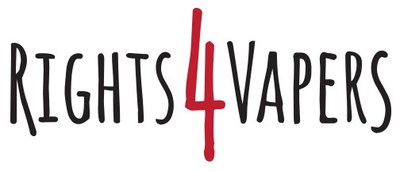Smokers' Rights to Know about Less Harmful Alternatives Undermined by Provincial Governments
TORONTO, Sept. 16, 2019 /CNW/ - According to Research Co.'s survey for the Canadian Association of Consumers, only 25 percent of smokers who sought advice from a physician on how to quit had vaping mentioned as an option and referenced as a potential harm reduction tool. Only 33 percent of smokers surveyed believed the products were less harmful than tobacco.

This new information comes on the heels of a decision by the Ontario government to sign a joint submission in which Canada's ten provinces and three territories demand that the federal government impose further restrictions on vaping advertising.
"If vaping advertising is prohibited and health officials are ill-equipped to advise smokers about these less harmful alternatives, it begs the question, how can public health advocates reach adult smokers to inform them of the full suite of options available to help them reduce their dependence on tobacco?" said Professor Chris Lalonde, academic advisor to Rights4Vapers.com, a consumer advocacy group dedicated to advancing evidence-based policymaking. "There is a clear need for more information on harm reduction products in Canada. Adults smokers understanding of vaping products contrasts with Health Canada's position that vaping is less harmful than smoking and offers smokers a potentially effective means to quit smoking."
Judges in two recent court cases ruled that policies that may prevent smokers from becoming aware of less harmful alternatives are a form of public health censorship and are unconstitutional.
Also, several federal and provincial regulations already exist that restrict vaping advertising to limit the appeal of these products to youth. Quebec's provincial regulations go the furthest to prevent vape retailers from advertising their products altogether, even where cigarettes are sold and even in adult-only establishments.
"If advertising is a key driver of youth trying vaping products, one would expect the ban on advertising in Quebec to result in lower rates of youth experimentation, but this is not the case," argues Professor Lalonde. "The youth experimentation rate is nearly equal to that of provinces with no vaping advertising restrictions. Advertising is not the key driver to youth uptake of vaping products."
Before the federal government introduces regulations requiring all other provinces to follow suit, regulators should also remember that a Quebec superior court judge recently found provincial restrictions on vaping advertising to violate the Canadian Charter of Rights and Freedoms. Namely integrity and personal security as well as freedom of expression. The judge concluded that; "The problem with the current restrictions is that the public—particularly smokers—do not distinguish between smoking and vaping… they must be permitted to know the difference. Rather than silence, it is sometimes necessary to educate and let people know that vaping exists first and foremost for smokers."
In the same vein, Facebook recently lost a lawsuit filed by a non-governmental organization which argued that the social media giant's policies have the effect of censoring posts on harm reduction, jeopardizing the ability for the public health groups to share information that could save lives. The case outlined the "problem of Facebook deleting pages, groups, posts, and that promoted harm reduction principles and products."
"In its consideration of further restrictions on advertising to protect youth,Rights4Vapers.com strongly urges the Canadian government to carefully weigh these concerns with the acknowledgment that adult smokers do not know enough about vaping nor do their trusted health providers," concluded Professor Lalonde.
SOURCE Rights 4 Vapers
